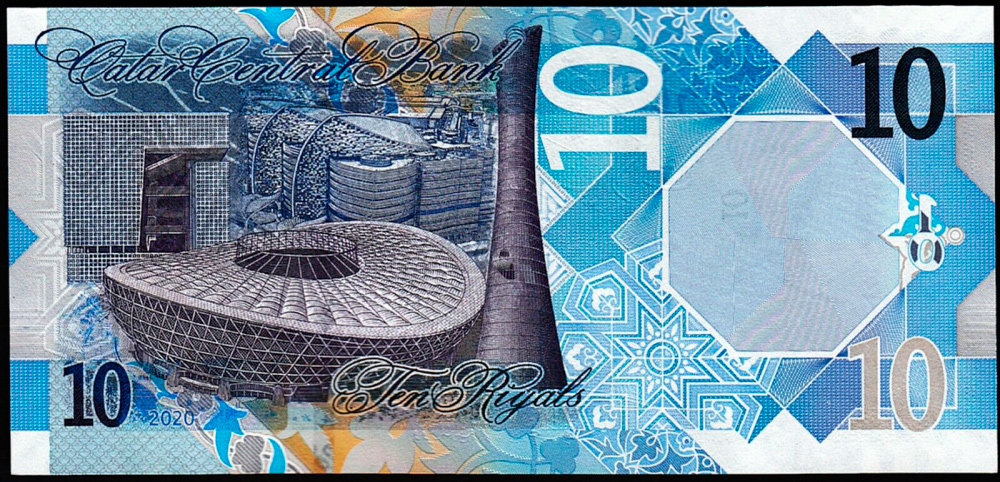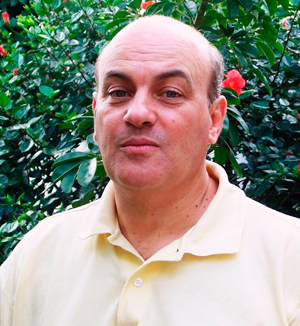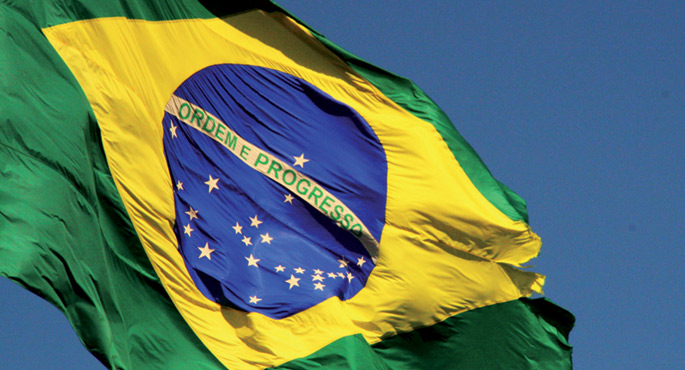"England's amateur unions have mobilized against a capital-based economic model"
- Economic journalist Andy Robinson has published 11 papers on the reasons and consequences of the economic crisis, including a book: A reporter on the magic mountain. "How the economic elite of Davos plunged the world" (Ariel, 2013). Born in Liverpool, he has written about football often, especially about UK teams, in the Catalan newspaper La Vanguardia, in recent years. Under the slogan "The Geopolitics of Football," he published half a dozen reports at the gates of the World Cup.

At the end of the final of the Champions League, the president of Real Madrid, Florentino Fernández, and the former president of the Spanish Government, José María Aznar, joined forces. What does this image suggest to you?
I do not know what kind of relationship they have, but Real Madrid is the symbol of Spain, the symbol of Spain represented by the Aznar Government, the symbol against Catalanism… Madrid represents the Spanish identity, the Catalan nationalism Barcelona. Football teams are like bridges. I haven't seen anything like that in other countries.
However, the chairmen of the football teams meet in clubs of all the countries with high positions in the political and economic world.
Yes, it is, because football is more effective than any other instrument for politicians, to present themselves as citizens with interests similar to those of the electorate. In England, 50 years ago, football was the sport of certain segments, the proletariat and the middle class. Conservative politicians dismissed it. Today, however, it is not linked to a particular class. Presenting yourself as a team fan will not hurt you, especially in the case of the national team, as you can get more profit than before.
In Liverpool, neighbours around the Anfield stadium began selling their homes about ten years ago, driven by the club owners, who planned to build a new football field. However, the project is stopped and there are many empty houses in the neighborhood.
The Liverpool club was bought in 2005 by Republican speculator Tom Hicks, owner of the American baseball team Texas Rangers, and since 2010 it has been led by the Fenway Sports group, led by Democrat John Henry, with the Boston Red Sox baseball team. It remains to be seen whether the current owners maintain the strategy of Hicks and its partner George Gillet or are going to follow a new path. It seems that they will not throw Anfield, but will raise it, although, as Paul Goldberg, spokesman for the fan group of Spirit of Shankly, it would be foolish to think that if they had an attractive price they would not sell the club.
The US investment managers also own Manchester United, Sunderland, Arsenal, Aston Villa, Cardiff and Fulham. The aim is to make the most of the products purchased, which has meant, among other things, that ticket prices become more expensive and that the most loyal supporters are less and less likely to attend the parties.
Football and cross were top-class sports, the rugby elite. Today everyone wants to play football, TV has made huge investments, tickets have become more expensive, overnight stays can barely go to their teams… The situation has led to the amateur football unions, including the Spirit of Shankly. They forced Tom Hicks to sell the club and pressured the new owners not to take the market strategy that is the model of football globalization to the extreme. The same has happened in Brazil: tickets have become more expensive as stadiums are modernised and poorer fans are finding it increasingly difficult to watch live matches. Last year’s protests have been organised taking advantage of the wave and have succeeded in paralysing, at least in part, the club’s intentions. In some stages, for example, the areas of parties where they could be seen standing have been maintained.
How does all this affect the identity relationship between teams and hobby?
In Spain, the identity component is highly politicized by tensions within the State, at least in many groups. In England it is different. Many of the most loyal fans have had to stop watching the games, they don’t know whether or not the players will be on the team next year… It’s hard to identify the players with the team. What are we left with? Our main sign of identity are the other amateurs, the community, that's what has value.
At the beginning of the year, a head of Liverpool said the company Dunkin Donuts would be the official sponsor of the football team, as Liverpool and Donuts are global brands moving in the same market. It's so cynical. In the Anfield district, 43% of children live in poverty, have an increased risk of health problems resulting from poor nutrition…

“Liverpool football club, built by Shank fans, destroyed by the Yankees,” says the banner displayed at the Anfield stadium. Hintxas complain about the intervention of speculative capital in the United States.
In Spain there is frequent talk of the imbalance in television rights. Is the cake most spread in England?
Yes, although it is not totally egalitarian. Football is not so monopolized: Madrid, Barcelona and lately ATLÉTICO. In England it is more difficult to predict which team will win, the revenue is more divided. In Spain, it is important that big clubs make big deals.
Is this model sustainable?
Many experts say that the Spanish League is not sustainable, on the one hand, because it is based on the Florentino model: making galactic fichajes and then amortizing by television or by marketing. On the other hand, or therefore, the fact that power – success – is in the hands of two or three groups can wipe out emotion and extinguish people’s interest. I don't know what to say.
On the other hand, in order to reduce the inequalities created by high-level football, steps in favour of UEFA’s fair play can bear fruit, as lower maximum wages can be set. In other words, groups could not accumulate debts to pay for hyper-salaries. It would also help if the European Commission were to sanction the aid that supports mega-forms.
In England, you can create problems as the most appreciated value of football, the amateurs, the identity link, is damaged. The investment funds themselves use a term that refers to the Fan Equity value, the fans' warmth, the feeling of community linked to the group. It is an intangible asset, cannot be explained with an economic formula; despite the bad results obtained by the club, this value will be maintained. That's part of the magic that football has. Gold is like mine, and investment funds know it. But it is paradoxical: although they are aware of their great value, all they want is to take advantage of it and they will end up destroying it. That is the saddest thing.
In the United States, there is no relationship of size between amateurs and teams, as demonstrated by the franchises that move clubs from city to city. It is curious what happens to the large investment groups there. Sport is more regulated: players have maximum salaries, TV rights are more divided, they use the draft system that helps the weakest teams to choose new players… All this limits the possibility of earning money, so our model attracts a lot.
It is undoubtedly an attractive model for speculative capital that has turned football into a source of income. At the moment, it is ruled out that the flow will be exhausted. In that case, some of them would grab another sweet, while many football teams would have the opportunity to open the closed road.
The 2030 World Cup will be played in six countries. Most matches will be played in Spain, Portugal and Morocco, but the opening matches will take place in Uruguay, Paraguay and Argentina. More teams than ever before, more matches than ever and the longest World Championship... [+]
Mistrust toward the joy of the other is not something of today; more or less we have all felt the feeling that sometimes the joy that is not of oneself has somehow emphasized self-pain. So far not quite bad, because everyone lives their contradictions. However, the problem... [+]
Futbolaren erritmora biziko da Qatar ondoko asteetan. Lehen aldia da arabiar erresuma batek Mundial bat antolatzen duela, eta egia da polemika handia sortu zuela Qatar hautatua izan zelarik mundiala antolatzeko.
The Male World Cup starts in Qatar. The death of thousands of works that have been building signs of corruption, stadiums and other infrastructures, persecution of women and the LGBTI collective, environmental impact, censorship, disruption of the football calendar... Not... [+]
Paola Schietekat mexikarrak, Qatarreko Munduko Futbol Koparen antolaketan lanean ziharduela (2021ean), salatu zuen gizon batek eraso egin ziola Qatarren. Bera zigortu zuten, ordea.
Raúl Zibechi idazle uruguaiarra Munduko Koparen testuinguru sozio-politikoari buruz mintzo da Desinformemonos.org webguneak maiatzaren 6an plazaratutako elkarrizketan. 'Brasil potencia' liburuaren egilea militarizazioaz, errepresioaz, gentrifikazioaz,... [+]
Although the etymological origin of the name of Brazil is not yet clear, the most accepted theory is that of the philologist Adelino José da Silva Azevedo. According to him, the word would originate from the celter bark, which the Phoenicians used to designate the red dye. In... [+]
Every now and then, while I'm doing something in the kitchen, I'm turning on Euskadi Irratia, early in the morning. Last day, two stories were crossed in the comments of the informants and Tertullians: the first, published by the newspaper The Guardian on February 23: “More than... [+]






















